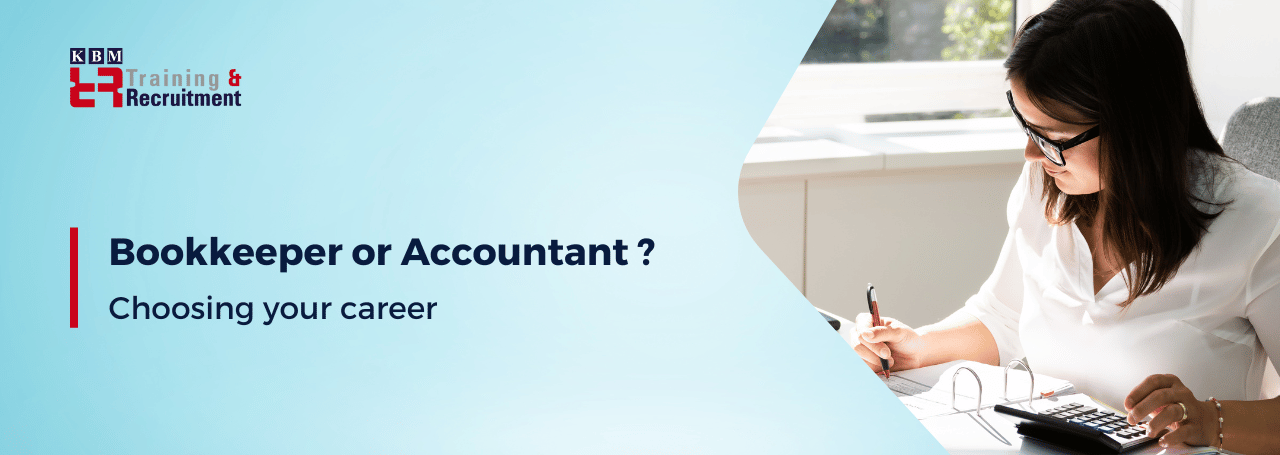Choosing a career in finance can be rewarding, but the path can be challenging. Two common choices in this field are becoming a bookkeeper or an accountant. Both roles are crucial in managing financial transactions but have distinct responsibilities and qualifications.
In this article, we'll explore the differences between a bookkeeper and an accountant, helping you make an informed decision about your financial career.
Bookkeeper: The Foundation of Financial Records
A bookkeeper is the backbone of an organisation's financial records. They are responsible for recording daily transactions, maintaining ledgers, and ensuring accuracy in financial documentation.
Bookkeepers use accounting software to track income and expenses, reconcile bank statements, and generate financial reports. This role suits individuals who enjoy detail-oriented tasks and have strong organisational skills.
Accountant: Analysing and Interpreting Financial Data
On the other hand, an accountant takes the financial data provided by bookkeepers and goes a step further. Accountants analyse, interpret, and present financial information to help organisations make informed business decisions.
Accountants prepare financial statements, conduct audits, and provide strategic financial advice. They often have a broader understanding of financial principles and are involved in long-term financial planning.
Bookkeeper: Practical Training and Certifications
Becoming a bookkeeper typically requires a high school diploma or equivalent. Many bookkeepers gain practical skills through on-the-job training or vocational programmes.
Additionally, obtaining certifications such as Certified Bookkeeper (CB) can enhance your credibility in the field. These certifications often cover payroll administration, financial reporting, and compliance.
Accountant: Higher Education and Professional Certifications
Unlike bookkeeping, becoming an accountant usually requires a higher level of education. Most accountants have a bachelor's degree in accounting, finance, or a related field.
Many accountants pursue professional certifications such as Certified Public Accountants (CPA) to demonstrate their expertise and improve job prospects. CPA exams cover various topics, including auditing, taxation, and financial accounting.
Bookkeeper: Accuracy and Organisation
Bookkeepers focus on the day-to-day financial transactions of an organisation. Their tasks include recording sales and purchases, handling payroll, and maintaining the general ledger.
Attention to detail and organisational skills are critical for bookkeepers to ensure that all financial records are accurate and up-to-date.
Accountant: Analysis and Decision-Making
Accountants take the financial data provided by bookkeepers and use it to analyse the financial health of an organisation. They prepare financial statements, conduct audits, and provide insights to support strategic decision-making.
Accountants play a crucial role in shaping a company's economic future, making their work integral to business success.
Bookkeeper: Specialisations and Experience
As a bookkeeper gains experience, they may specialise in payroll, accounts payable, or receivable areas. Advanced certifications, like the Certified Public Bookkeeper (CPB), can open up new avenues for career growth.
However, the upward mobility within bookkeeping is often limited compared to the opportunities available to accountants.
Accountant: Diverse Career Paths
Accountants have a broader range of career paths and opportunities for advancement. With experience and relevant certifications, accountants can climb the corporate ladder to become financial managers, controllers, or CFOs.
Some accountants also specialise in forensic accounting, taxation, or management consulting.
Bookkeeper: Competitive Compensation
Bookkeepers typically receive competitive salaries, with variations based on factors such as location, industry, and experience. While the pay may not be as high as an accountant's, bookkeepers still enjoy stable and rewarding compensation for their essential role in maintaining financial records.
Accountant: Higher Earning Potential
Accountants generally have a higher earning potential compared to bookkeepers. The additional education and expertise required for this role contribute to the increased compensation.
Certified professionals like CPAs often command higher salaries, reflecting their specialised knowledge and skills.
Conclusion
In summary, choosing between becoming a bookkeeper or an accountant depends on your educational background, career goals, and interests. If you enjoy working with detailed financial transactions and prefer a quicker entry into the workforce, becoming a bookkeeper may be the right path for you. On the other hand, if you aspire to play a more strategic role in shaping an organisation's financial future and are willing to invest in higher education, pursuing a career as an accountant might be the ideal choice.
Ultimately, both bookkeepers and accountants are essential components of the financial ecosystem, and the right career for you depends on your strengths and aspirations. Consider your educational preferences, career goals, and the type of work that excites you when making this critical decision. Whether you choose the meticulous world of bookkeeping or the strategic realm of accounting, a finance career will indeed offer challenges and rewards for those with a passion for numbers and precision.




















